[Techie Tuesday] From building India’s first supercomputer to finding a non-invasive way of detecting breast cancer, the story of Niramai’s Geetha Manjunath
This week on Techie Tuesday, we feature Geetha Manjunath, Co-founder, CEO, and CTO of Niramai Technologies, an AI-based healthcare startup. In a conversation with YourStory, Geetha charts her journey from working on India’s first supercomputer to building Niramai.
When you meet her, Geetha Manjunath’s love for tech is palpable. But that’s the way it has always been for this techie-entrepreneur, which has made her constantly seek out new avenues to keep learning.
When she went in for her PhD in Artificial Intelligence (AI) and Machine Learning (ML) at IISc, Bengaluru, Geetha already had over 17 years experience in research and work involving computer systems.
“I remember the first day as it was yesterday, I was the oldest one in class. In a way, it wasn’t a new experience. During my engineering days, I was one of the two girls in the class. I was the only woman during my Master’s, and again during my years at the Centre for Development of Advanced Computing (CDAC),” Geetha recalls.
From working on the first supercomputer built in India to starting up in the healthtech space with Niramai Technologies, Geetha has let nothing stop her from embracing a career in STEM.
Now, her success story with Niramai is world famous.
Using AI, the startup detects breast cancer in the early stages with non-invasive, radiation-free, and painless methods. With over 30 installations at hospitals and diagnostic centres across 10 Indian cities, her team wants to eradicate breast cancer deaths.
But let’s step back a bit to understand Geetha’s love for engineering and science, which began during her early days and was helped along by copious amounts of encouragement from her father.
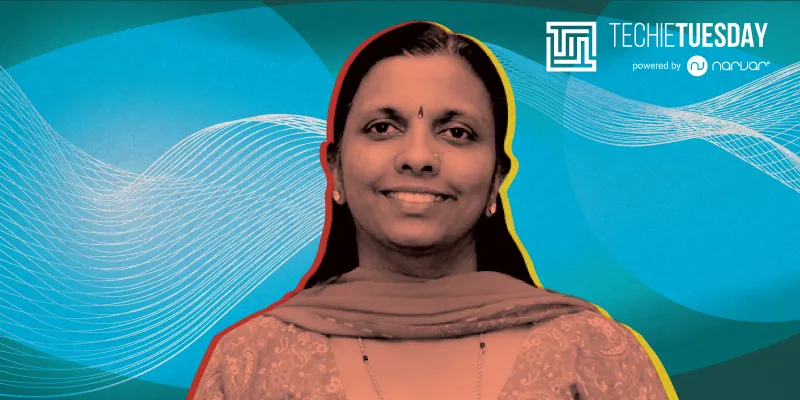
Geetha Manjunath, Co-founder Niramai
The computer that filled the room
“My father was not an engineer. But he had an engineer’s mindset. He would always find ways of repairing broken things at home, and would encourage us to do so as well. It was looking at him that I started tinkering and looking at how products work. So it was a no-brainer that I chose science,” says Geetha.
In 1984, when she was all set to do her graduation, the state topper chose engineering, and was in one of the first batches at her college to learn computer science.
For Geetha, Computer Science was a subject she wanted to pursue. Her first tryst with a computer had taken place at an exhibition and she knew that she had to study more about its workings.
“I had just been to an exhibition and seen a computer. And half an hour at that exhibition with the computer was enough. We had no computers at home, and the first one I saw was big and occupied the whole room. I didn’t know much about computers, but I knew I wanted to know how they worked,” says Geetha.
But Geetha, all of 18, was at a crossroads: she had ranked 12th in the state of Karnataka in engineering and 15th in medical in the Common Entrance Test. If not for engineering, Geetha was all set to become a doctor. Interestingly, her startup Niramai today combines both her interests.
She says,
“I remember there was immense pressure from different quarters to opt for medicine. Those days, a medical seat was coveted and here I was with options to join any of the top colleges. By my heart was in engineering. And I thank my father for that. He said to me, ‘We only live once, so do what you want and choose a line that you’re passionate in’. He is no longer with me today, but his words are what I live by.”
Geetha topped engineering and even received a gold medal from the state. She was one of the 10 girls in engineering college. During her final year, she worked on a project at IISc, building a four-node parallel computer.
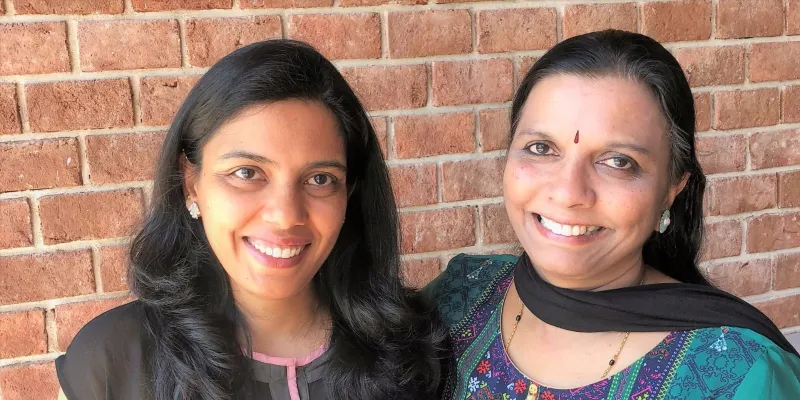
Nidhi Mathur and Geetha Manjunath, Co-founders Niramai Technologies
The project that sparked the love for research
Geetha speaks of her love for research and how it all began with a project at IISc. “We had to work from scratch. And since it was both a software and hardware project, it meant spending nights understanding the components and the systems. It took us six months to get the parallel computer working. We were jubilant the day we got the program to work on the parallel computer,” she quips.
Eliminate shipping anxiety and convert shoppers into loyal customers.
“Narvar gives us an opportunity to positively impact the overall shopping experience for our customers from the moment they have clicked the buy button; and this keeps them coming back. The solutions are easy to implement, scalable and impactful.” Pragya Batra, Co-founder, Quirksmith
After her short project stint at IISc, Geetha had made up her mind to pursue research. So, after her Master’s, when she got the opportunity, she decided to work at CDAC.
“Here, we were building the first supercomputer in India for India and by Indians. The feeling was great. The code I developed while there is still being used,” says Geetha. From there she moved onto HP Labs, which was setting up a new centre for research.
The idea of the centre was to prove to the world that research work too could be done by Indians.
“We were an extended team that worked directly with the head office in California. And we had one focus - innovation. It was here that I worked on computing, pervasive computing, distributed computing, thinking of ideas for systems development,” says Geetha.
Of glass ceilings, and shattering them
But it wasn’t all smooth for Geetha who faced gender discrimination at work. It was then that she learnt an important lesson: if you have an idea, back it up with a prototype and facts. And push back. Hard.
“I was the only woman in most teams in the early days. And even if I were part of the senior teams, my ideas weren’t accepted easily. There definitely is a pushback. I would work nights to build a prototype just for a basic idea to show that my idea had weight and isn’t flimsy. But when a man presented the idea, it didn’t need any kind of proof to be accepted. I learnt very early on that I had to put double the efforts,” says Geetha.
But this discrimination proved to be a blessing in disguise for Geetha. “So even now, I just don’t present any idea without backing it up with justifications, feasibilities, and a complete study,” she adds.
And backing all this was plenty of hard work. These were times when her day began at four in the morning and wrapped up at two the next morning. And through it all, she never stopped learning.
It was during her stint at HP Labs that Geetha began researching and working on AI and ML. “During my research, I realised that AI and ML could change the way we interact with machines and even how we use them in the future,” says Geetha.
Thus, when she got an opportunity to pursue her PhD in AI at IISc, Geetha grabbed it. While there, she decided to focus her work on understanding how AI could be used to transform sectors and how technology can be used to change methodology.
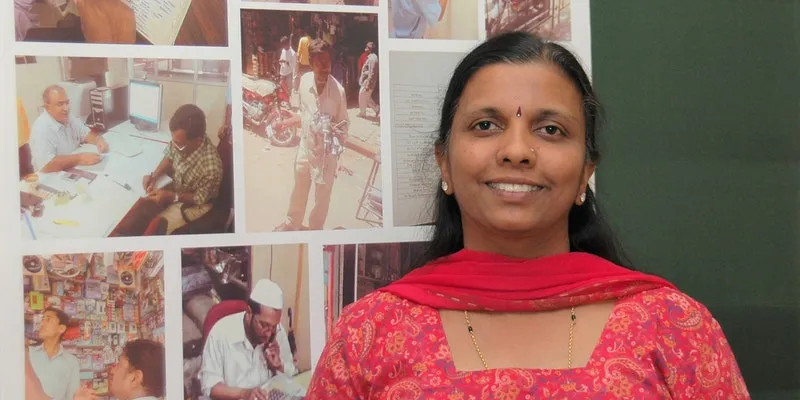
Geetha Manjunath
When healthcare met tech
Geetha then went on to work at Xerox Labs, where she hit upon the idea of using AI in healthcare.
“I was working with my teams at previous multinational companies on how we could use AI for different sectors like healthcare, transport, and others. We worked closely with several US-based healthcare institutes. At this time, one of my cousins was detected with breast cancer. Within a few months, my husband’s cousin too was detected with breast cancer,” Geetha recalls.
Both the women were under 45 years of age, and this came as a shock to Geetha. As she was already working on research in healthcare, she decided to look at breast cancer more closely. Thermography came up during her discussions with different researchers in the US. However, many healthcare institutions didn’t use thermography due to the prevailing accuracy issues.
Out of pure curiosity and with no real agenda, Geetha began looking at the process and studying the global scenario in breast cancer detection and treatment.
“I realised that most cases were detected in the later stages. We realised that the accuracy issues of thermography could be easily tackled with the work we had done in imaging and AI,” Geetha says.
Today, Niramai has raised close to $7 million in funding. It owns nine US patents and one Canadian patent. The startup is the only Indian company listed in the 2019 cohort of AI 100 Startups in the World by global business data intelligence platform CB Insights. The company is also working on a solution to detect River Blindness, with support from the Bill & Melinda Gates Foundation.
“We feel that late detection of breast cancer is a global problem. We want to reach every woman on earth. In the short term – this year and the next - we want to reach pan-India. We aim to expand to other Asian countries next year and Europe, and the US after that. The technology is also helpful for other types of diseases, and we can look at detecting other abnormalities in the long term,” Geetha says.
The evolution of technology
Geetha, who has been in close quarters of the industry, notes that tech has become simpler.
“Tech today has evolved so much and become so much simpler. Close to 20 years back when we worked on a small embedded device or even wrote a program, the engineers would work for six months to a year to get the nuts and bolts working. Today, there are software kits that have made it so easy to create and develop software. This is because, for years, researchers worked to remove the complexities in the tools of tech,” she says.
She notes
“Today, the world is more app-driven. It is a diametric shift. Earlier, OS developers, system programmers, and people working on compilers were more respected than app developers. Apps had little work being done on them; they were just a layer on top with little code. Today, that is different with all system-level programs becoming packaged, and now algorithms, working on AI and ML, have become more interesting. There also is an interesting shift towards data computing and focus on understanding the application, and the problems that are there to be solved."
And today, there are also better opportunities for women in tech. Geetha’s advice to women pursuing technology?
“If you like computers do it. Don’t get disheartened by a ‘no’. Figure out and fix the gaps, reach out for help. People will ridicule your idea and if you believe in it, you can make it happen.”



![[Techie Tuesday] From building India’s first supercomputer to finding a non-invasive way of detecting breast cancer, the story of Niramai’s Geetha Manjunath](https://images.yourstory.com/cs/2/a9efa9c0-2dd9-11e9-adc5-2d913c55075e/Techie-Tuesday-Geetha-Manjunath1560780626901.png?mode=crop&crop=faces&ar=2%3A1&format=auto&w=1920&q=75)

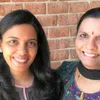
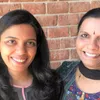
![[Techie Tuesday] Meet VMware’s first woman software engineer who now helms the tech platforms t...](https://images.yourstory.com/cs/2/a9efa9c0-2dd9-11e9-adc5-2d913c55075e/Jenifer_Anderson_TechieTuesdays_2-011560176967790.png?fm=png&auto=format&h=100&w=100&crop=entropy&fit=crop)